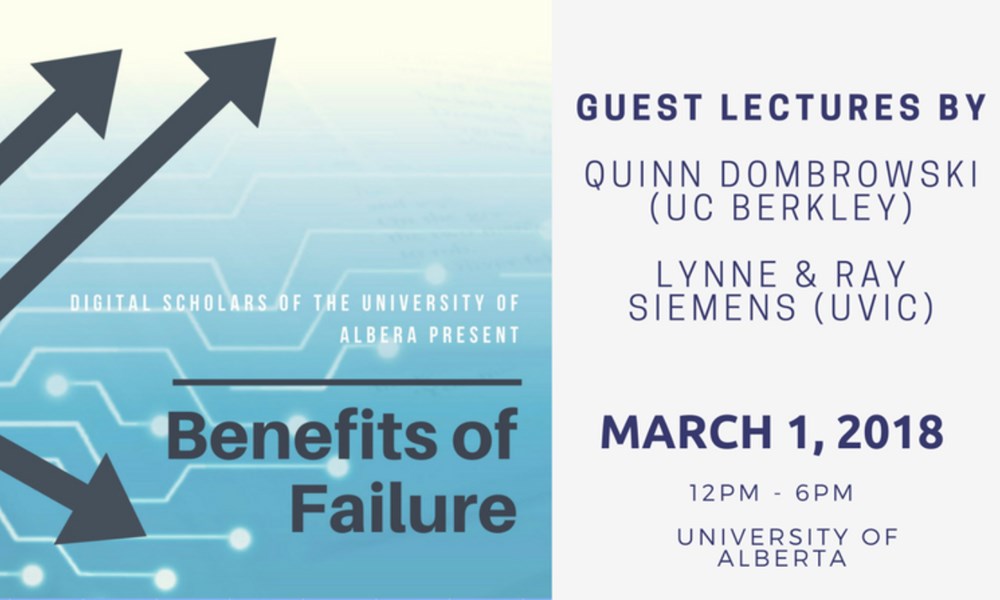Lynne Siemens and Ray Siemens gave the final keynote of the On the Benefits of Failure conference. Their talk was titled “Training Ground for Success? Perspectives on Failure in Several Contexts.”
Ray started the talk by talking about tragedy and comedy and how we know from Frye taught us that tragedy can become comedy (and vice versa) if you can keep telling the story. Failure can become becoming if you keep thinking about it. If we look at how failure is talked about we see that many talk about how one can learn from failure. My guess is that there is failure you can learn from and failure that shames you.
Lynne talked about the example of post-it notes and how they were initially a failure that then became a success. She asked the grad students to think of themselves as academic or intellectual entrepreneurs who develop new methods, ideas, and products. She then talked about innovation cycles and the importance of reflection at the end. We need to reflect on what we call failure and this reflection can build positives into the cycle.
Lynne then talked about three case studies and some take aways:
- Project Bamboo – inability to define themselves; disconnect between stakeholders; reduction of funding; turnover of project leads
- Transcribing Bentham – this was a project to use crowdsourcing to transcribe unpublished Bentham. They saw all sorts of problems with volunteers from quality control to motivation. They have done a great job evaluating the success.
- NEH DH Start-Up GRants – the NEH looked at a number of startup grants to see what worked and didn’t. It was important to have technical translators and that humanists are good at teamwork.
Then Ray talked about success and failure at the Digital Humanities Summer Institute (DHSI). It began with about 30 people and then grew to hundreds. Each year, at the end, they would ask what worked and could work better. Some
- It is always better to have input than not
- Achieving consensus is hard and takes time
- They have a statement of ethics and a shorter note that goes out to all. It emphasizes that DHSI is a community event that is based on respect.
Ray then talked about Pat Clements and Isobel Grundy and the Orlando project. In their early failures they learned what they needed to know. Ray then talked about their tuition scholarship programme and now they have a Patricia Clements DHSI Travel Bursary.
